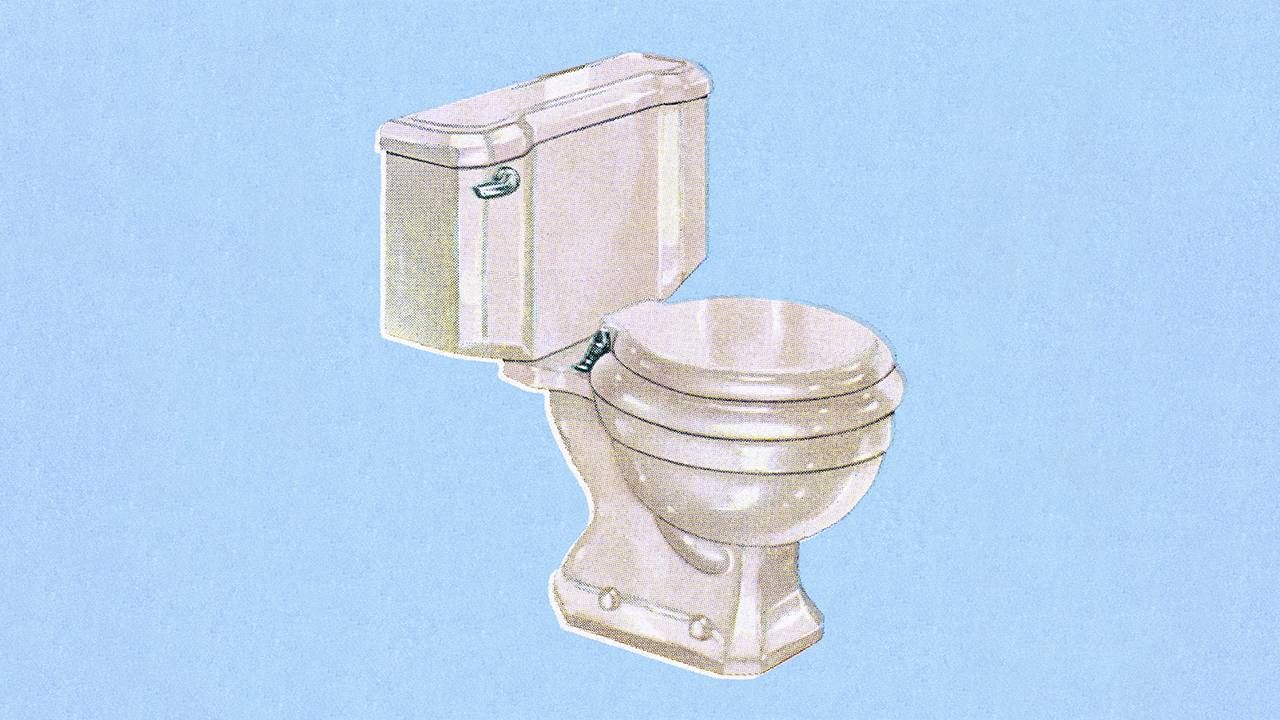Conquering Constipation When It's Go Time
Who gets constipation, how to treat it and the role the pandemic has played
I am grateful for many things — the lessening of pandemic-related restrictions, my loving, loveable husband and cuddly kitties, as well as our impending beach vacation which will take me far from home for the first time in almost two years. And I am grateful — very grateful — for prunes.

There, I said it.
Other pandemic-related changes have likely contributed to constipation for some people.
Some of us are okay with telling people how much money we make or how much our houses cost. Fewer of us talk about our sex lives. But hardly anyone talks about constipation. Yet constipation, whether occasional or chronic, is a common problem — especially for older adults.
Close to 20% of the population has constipation, with chronic constipation responsible for roughly 2.5 million physician visits and 100,000 hospitalizations annually, according to a 2015 article in Clinical Interventions in Aging. The World Gastroenterology Organization says as many as 65% of people over 65 struggle with it.
Why Older Adults Are Prone to Constipation
Older adults are especially prone to constipation for a variety of reasons. These include decreased muscle tone in the bowel and abdominal muscles, slowed peristalsis (involuntary constriction and relaxation of muscles in places like the abdomen), lack of exercise or decreased mobility, change in dietary habits, chronic medical conditions such as Parkinson's disease and increased medication usage.
Also, "stress plays a very important role in functional gastrointestinal disorders," says Dr. Saleem Chowdhry, a gastroenterologist at the Cleveland Clinic.
In stressful situations, the body's adrenal glands release epinephrine, a hormone important in the fight-or-flight response. This causes the body to reroute blood flow from the intestines to vital organs such as the brain and heart, causing the bowel to work less efficiently at processing and eliminating waste.
In the pandemic, Chowdhry notes, "although it is only one causative factor — COVID-related stress and anxiety contributed to an increase in constipation, irritable bowel syndrome and a variety of other GI symptoms."
The Pandemic's Connection to Constipation
Other pandemic-related changes have likely contributed to constipation for some people.
When lockdown started, offices and workplaces closed, supermarket visits decreased, eating habits changed and workout activities were disrupted, explains Diana Mesa, a registered dietitian and nutritionist in Miami.
"For some time, it was even difficult to find whole grain products and non-perishables like canned vegetables and nuts, all of which are high in fiber," says Mesa. "Dietary fiber adds bulk to stool and helps to soften it, making it easier to pass."
Without the normal things that help to "keep us going," many people found it hard to go.
If you ask five individuals to define constipation, you may well get five different answers.
Normal bowel habits vary greatly in terms of frequency and consistency, usually ranging from three times a day, often after every meal, to once every other day or so. Still, if you ask five individuals to define constipation, you may well get five different answers.
Some people believe if they don't have a bowel movement every day that means they are constipated. Others define it as having hard stools or needing to strain.
Physicians use what's known as the Bristol stool scale or the Rome 1V criteria to define constipation, looking at a combination of objective factors (like stool frequency and manual maneuvers needed to defecate) as well as subjective factors (straining, lumpy or hard stools, incomplete evacuation and a feeling of obstruction or blockage).
What Can Cause Constipation
A number of factors contribute to constipation, including:
- Lack of adequate fiber
- Inadequate water intake or dehydration
- Lack of magnesium, which normally works to promote the wave-like movements (peristalsis) that move the food downward in the GI system
- Physical inactivity
- Side effects of medications, many of which (iron supplements, opioid pain relievers, antacids containing calcium or aluminum and calcium channel blockers) are constipating
- Tight or spasming pelvic floor muscles
- Irritable bowel syndrome, which is a disorder of the gastrointestinal tract (Chowdhry says the most important difference between “constipation predominant IBS” and “normal” constipation is the presence of recurrent abdominal pain; other symptoms of irritable bowel syndrome can include constipation alternating with diarrhea, cramping, gas and bloating.
- Inflammatory bowel disease
Most times, constipation is just uncomfortable but not serious, usually responding well to alterations in diet, lifestyle changes and other simple interventions. However, chronic untreated constipation can lead to hemorrhoids, where veins around the rectum and anus become swollen and painful from having to push hard to get the stool out.
Straining can also cause damage to pelvic floor muscles which help to control your bladder.
Another consequence can be the development of anal fissures (torn tissue around the anus) which can lead to itching, pain and bleeding.
When to See the Doctor
That's why it's important to get an accurate diagnosis and follow through on medical recommendations.
When is constipation worth seeing a doctor? If you experience it consistently or need to use laxatives for more than two to three weeks.
The probiotics in sauerkraut, kimchi and yogurt help to increase "good bacteria" in your intestines.
When you do visit your physician with a complaint of constipation, you'll receive an examination and be asked questions to find out the potential reasons you're experiencing irregularity. These will include ones about recent modifications in eating habits or activity levels, new medications, presence or absence of blood in stool and changes in your bowel habits, patterns or appearance.
A simple stool sampling test for hidden blood (what's known as fecal occult blood) may be done, and you'll be asked if and when you've had a colonoscopy. Current guidelines suggest a baseline screening colonoscopy at 45 and then one every 10 years unless you are at high risk, in which case more frequent colonoscopies may be recommended.
After a basic assessment, and depending on the seriousness of your constipation problem, your doctor may refer you to a gastroenterologist (a specialist in digestive problems) or discuss ways to prevent and treat irregularity with a recommendation to return in several weeks to see if there has been improvement.
"The best ways to prevent constipation are to consume lots of fiber-rich foods, drink plenty of liquids, participate in joyful movement and learn healthy ways to manage stress," says Mesa. She suggests yoga, mindfulness and diaphragmatic breathing to aid in relaxation.
How to Avoid Constipation
Other recommendations:
Eat at least 20 to 35 grams of dietary fiber a day. You can find them in whole wheat bread, whole grain pasta, quinoa, bran cereal, legumes such as lentils and black beans, all kinds of vegetables, fruits with their skin on, berries and, of course, prunes. Cashews and other nuts are also helpful, as are seeds such as ones in rye bread or seeded rolls.
Drink at least eight glasses of water daily and other liquids, such as naturally sweetened fruit and vegetable juices. Some people find milk to be constipating, though.
Eat fermented food. This includes sauerkraut, kimchi and yogurt; the probiotics help to increase "good bacteria" in your intestines.
Avoid foods you find constipating. Likely culprits are bananas, white rice, processed food such as hot dogs and dairy products.
Engage in aerobic exercise or movement often. Try for at least 30 minutes at a time, five days a week.
Natural remedies. Examples: kiwifruit and psyllium fiber.
A recent article on the NEJM Journal Watch site noted that the efficacy of green kiwifruit supplements has been supported by a few small trials in Europe and Asia and that a study in Michigan of patients with chronic constipation found that green kiwifruit, prunes and psyllium all helped. Bloating improved among the patients taking kiwifruit and side effects such as abdominal pain were least likely with kiwifruit.
Your doctor may also suggest you take over-the-counter supplemental fiber tablets such as Metamucil, Citrucel or Benefiber or laxatives like Milk of Magnesia or Miralax.
Stool softeners such as Colace and Surfak can help, too. They draw water from the intestines to moisten the stool.
If necessary, prescription medications such as lubiprostone (Amitza), linaclotide (Linzess) and lactulose (Cephulac, Kristalose) to treat chronic constipation are available as well.


